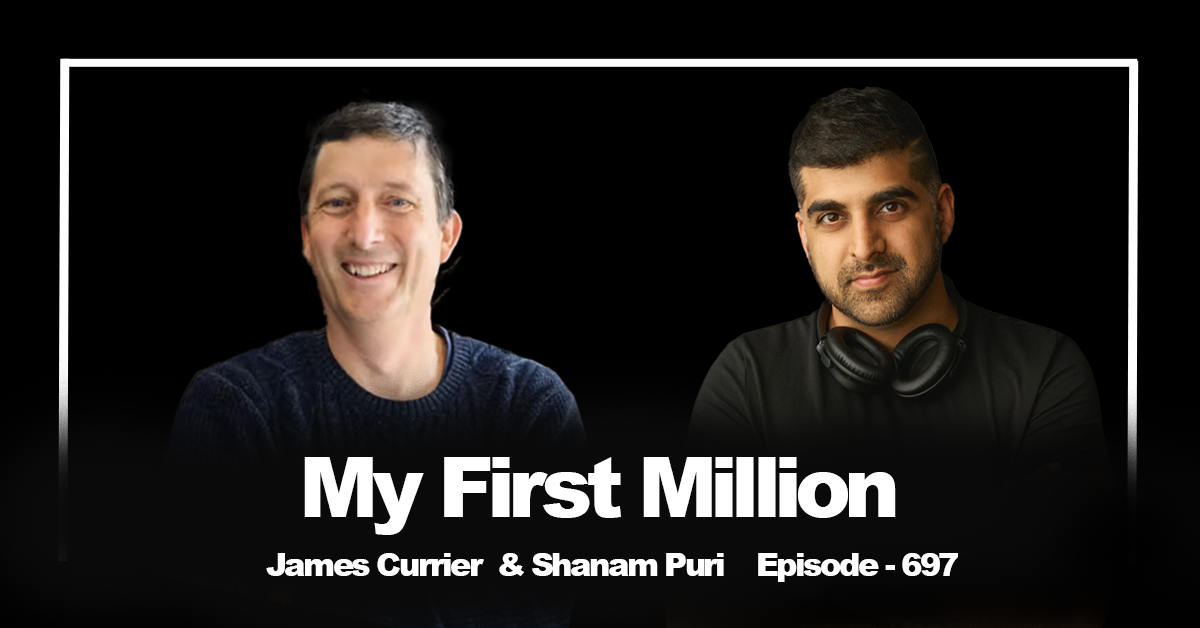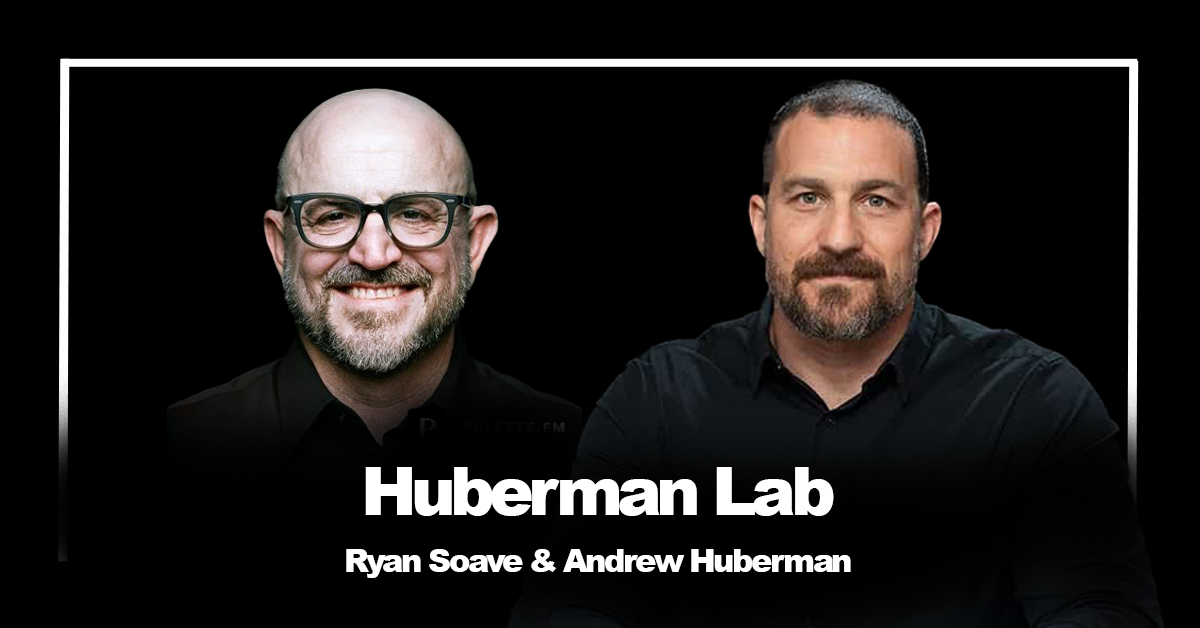This week features a whirlwind conversation with Will O’Brien, an entrepreneur diving deep into the “new space” – the ocean. Forget rockets for a moment; Will argues that the ocean economy, already massive at $3 trillion annually, holds immense, untapped potential for innovation and disruption, much like space exploration.
Will, co-founder of Ulysis (building autonomous robots for maritime operations), shares his journey from a software background to tackling the complexities of ocean tech. They discuss the current state of ocean technology (often lagging behind), the critical role of resources like seagrass (a “baby crib for the ocean” capturing vast amounts of carbon), the challenges of restoration, and some wild tangents into ocean treasure hunting, conspiracy theories, and a summer living with monks in Nepal.
This isn’t just about business; it’s about a mindset – seeing opportunity where others don’t, leaning into weird ideas, and the contrarian spirit often found in successful founders (and maybe conspiracy theorists).
Here are the detailed key insights and takeaways:
1. The Ocean: The Underrated Frontier
- Massive Economy, Stagnant Tech: The ocean economy (fisheries, transport, energy, defense, biodiversity) is huge ($3T annual spend, 3B people rely on it for diet, 1B for income). Yet, core technologies (ships, underwater drones) haven’t seen the radical innovation present in space or aerospace.
- The Opportunity: Like SpaceX revolutionized space access, there’s a massive opening for startups to bring modern tech (AI, robotics, autonomy, better data gathering) to solve ocean-based problems.
- Key Pillars: Will breaks the ocean economy into roughly three categories: Biosphere (fisheries, ecosystems, science), Prosperity (energy, infrastructure, logistics), and Security (defense, border control).
2. Ulysis & The Seagrass Mission
- Ulysis: Building a general-purpose autonomy platform for maritime operations – essentially, smarter robots for ocean tasks.
- Initial Focus: Seagrass Restoration: Their first business line tackles the critical issue of seagrass loss (dying off at ~7% annually). Seagrass is vital: holds 20% of ocean carbon, supports 25% of critical fish stocks, captures carbon 35x better than rainforests.
- The Tech: Ulysis developed custom robotic payloads for autonomous underwater vehicles (AUVs) deployed from an autonomous surface vehicle (ASV “mothership”). These robots can collect seeds, plant them, and monitor growth – automating a currently manual, difficult process. Starlink provides the crucial high-bandwidth communication.
- Why Seagrass First? Addresses a critical ecosystem need with compliance-driven demand (laws often require restoration if seagrass beds are damaged), providing initial revenue and a proving ground for their platform.
3. The Innovation Mindset & Technology Windows
- Seeing the Unseen: Will references James Currier’s “technology windows” concept – periods where new tech (like mobile, AI, batteries) opens up opportunities for startups to build things previously impossible. He believes AI, robotics, and 3D printing are opening a new window for hardware-focused innovation, including ocean tech.
- Benefit of Being an Outsider: Will believes not coming from the traditional maritime industry allowed his team to approach problems without preconceived notions, leading to breakthroughs (like their cost-effective AUV design).
- Founder Archetype: Compares the drive to pursue weird, contrarian ideas (like ocean tech or even conspiracy theories) to a founder’s essential trait – believing in something others dismiss and seeing patterns others miss. Requires cultivating an ability to see the world differently.
- Elon Musk Example: Notes Elon didn’t invent rockets or electric cars, but saw trillion-dollar opportunities others ignored, combining existing elements with relentless execution.
4. Data, Defense & Deep Sea Cables
- Data Centers at Sea: Discusses the trend of placing data centers underwater (Microsoft, Network Ocean) for cooling efficiency. Ulysis aims to be the servicing partner for this future infrastructure.
- Subsea Cable Vulnerability: Highlights the critical importance and surprising vulnerability of the ~600 active subsea data cables that carry most internet traffic. Discusses the geopolitical implications of potential cable cutting (e.g., by China’s advertised deep-sea cable cutters) and the need for better underwater defense/monitoring (a role for companies like Anduril and potentially Seronic).
5. A Summer with Monks & The Nature of Desire
- The Experience: Will spent a summer teaching English at a monastery in Nepal.
- Clash of Philosophies: He struggled with the Buddhist concept that desire leads to suffering and the goal is zero desire (enlightenment). As an “American Dream pill” type, he felt desire was essential for drive and achievement.
- Finding Balance (The Rose Bush Analogy): His eventual insight was that desire needs pruning, not elimination. Like a rose bush needs cutting back to produce beautiful flowers (instead of becoming thorny briars), focusing desire on a few core, meaningful things (his “five desires”: family, health, wealth, fitness, craft) provides direction without overwhelming suffering. Minimum necessary desire.
6. Conspiracy Theories & Contrarian Thinking
- Overlap with Founders: Will sees parallels between the traits of conspiracy theorists (seeing patterns, believing in hidden truths, contrarian spirit) and successful founders. It’s about cultivating the ability to see the world differently from the default.
- Leaning into Weirdness: Argues for the importance of exploring “weird ideas” and the “unexplainable” on the fringes, as that’s often where breakthroughs happen (citing Christian mystics, challenging physics experiments, telepathy research). Refusing to dismiss things outright keeps curiosity alive.
Final Thought:
Will O’Brien embodies the energetic, slightly contrarian spirit driving much of today’s deep tech innovation. His passion for the ocean frontier is infectious, revealing a world of opportunity hidden beneath the waves. His reflections on founding principles, the nature of desire, and the importance of unconventional thinking offer valuable lessons beyond just the maritime industry.
Find Will O’Brien: On X @WillO_Brien
Until next time,
The Podcast Notes Team





